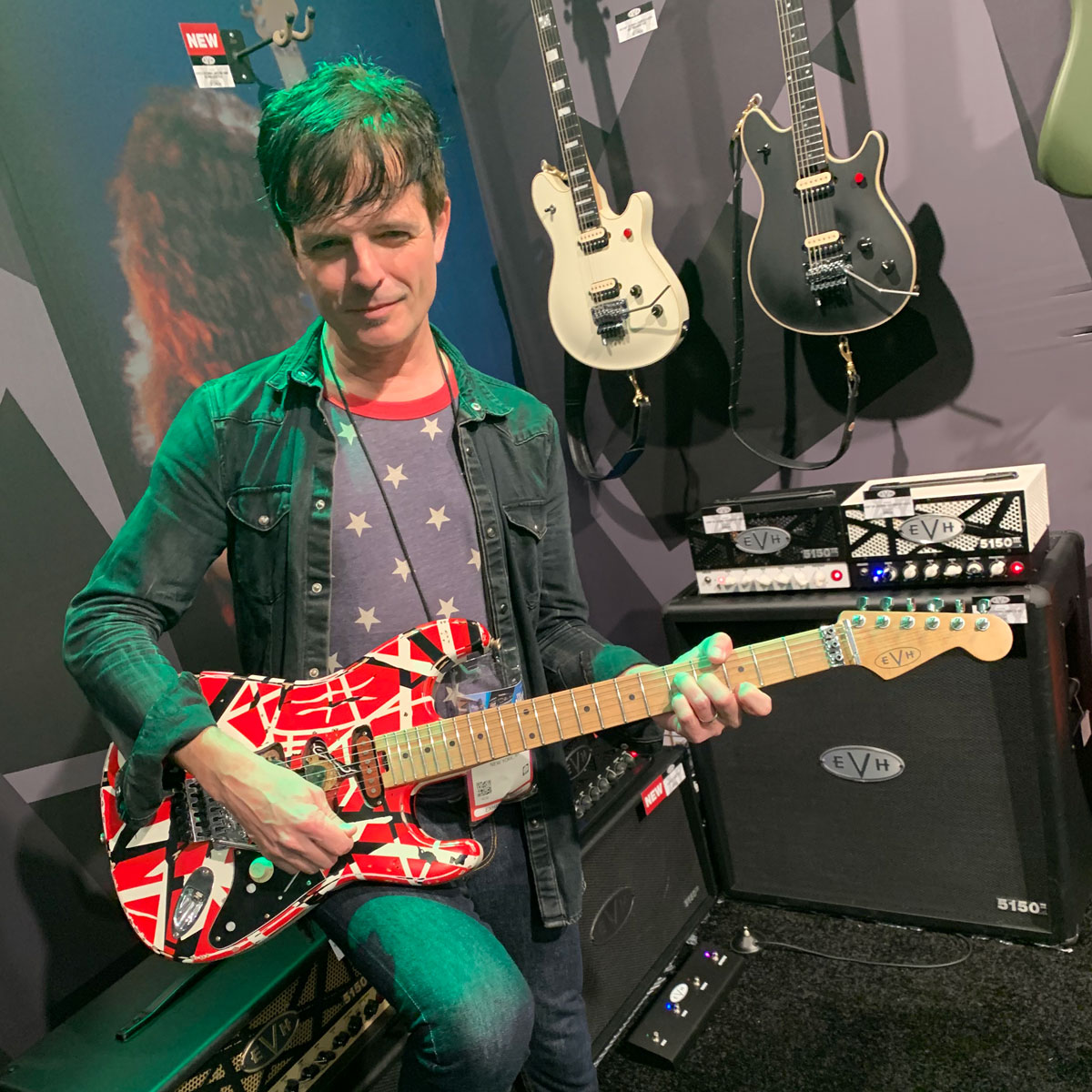Review: Fender Jimi Hendrix Monterey Stratocaster

The 1967 Monterey Pop Festival would have been just another music fest—if not for Jimi Hendrix’s stunt of torching his Strat (and then smashing it to bits).
While it wasn’t the first time Hendrix set a guitar on fire, it’s worth noting that Hendrix hand-painted that guitar prior to scorching it but used a different Strat throughout his performance. And while I have no fondness for guitars decorated with squiggly hearts and flowers (hell, I would have set it ablaze, too), I must admit the brand-new limited-edition Fender Jimi Hendrix Monterey Stratocaster is growing on me. Big time.
Fender—who issued the axe to commemorate the 50th anniversary of Hendrix’s performance—made the guitar affordable for most players, considering the Fender Custom Shop released a limited run at more than triple the price in 1997.
The guitar features Hendrix-inspired artwork, vintage-style single-coil pickups, Sixties-style C-shaped maple neck with pau ferro fingerboard, 7 1/4–inch neck radius with 21 vintage-sized frets, vintage-style six-screw synchronized tremolo, a custom neck plate featuring an engraved Authentic Hendrix image and Hendrix’s signature on back of the headstock.
The Jimi Hendrix Monterey Strat has a certain je ne sais quoi that makes it sound way more open than other Strats. Whatever “Voodoo Child” mojo Fender summoned to voice the pickups works, because the guitar sings with larger-than-life fullness.
The neck pickup has a juicy fatness that makes notes sound huge, while the aggressive bridge pickup slices deep without sounding wimpy. It’s so good you’ll forget the squiggly artwork on the body.
STREET PRICE: $899.99
MANUFACTURER: Fender, fender.com
All the latest guitar news, interviews, lessons, reviews, deals and more, direct to your inbox!
Paul Riario has been the tech/gear editor and online video presence for Guitar World for over 25 years. Paul is one of the few gear editors who has actually played and owned nearly all the original gear that most guitarists wax poetically about, and has survived this long by knowing every useless musical tidbit of classic rock, new wave, hair metal, grunge, and alternative genres. When Paul is not riding his road bike at any given moment, he remains a working musician, playing in two bands called SuperTrans Am and Radio Nashville.

